Rwanda’s Creative Sector Holds Vast Potential Through Women Artists
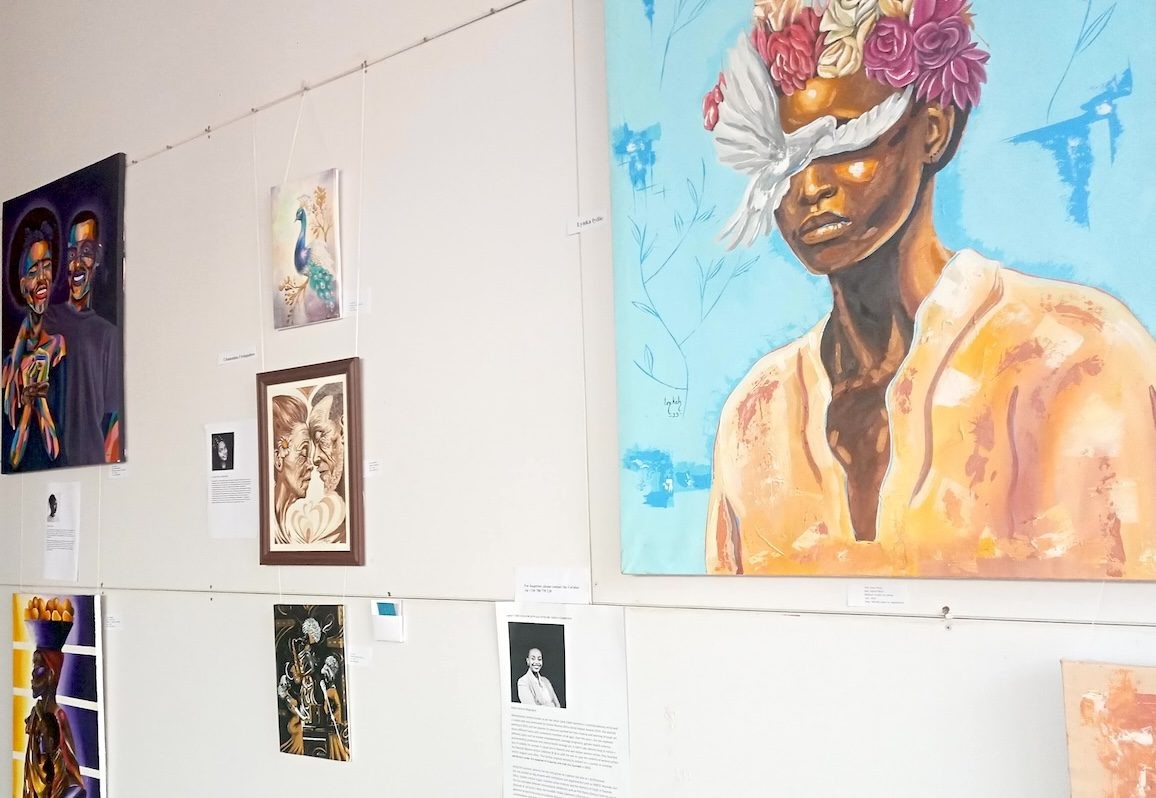
Andrew Israel Kazibwe met with Jemima Kakizi, artist, curator, and organizer of arts mentoring programs, to speak about the huge potential for female artists.
It is no longer of doubt that women have recently captured and now hold a prominent place across the Rwandan visual art scene. Among the platforms that have facilitated this shift is Impundu Arts Center, which fosters the growth of young women through visual art.
Male visual artists would dominate art exhibitions in Rwanda, with women’s participation barely visible, but this changed in 2022 – the year that Impundu Arts Center was founded and began organizing multiple exhibitions by female artists, other art projects, and mentorship programs. The same year saw another kickstart to the visibility of art by women: At the Entrance, an exhibition, hosted at Kigali Soul Art Gallery, of art by female Rwandans.
Jemima Kakizi, founder of Impundu Arts Centre and curator of At the Entrance, has not looked back since.
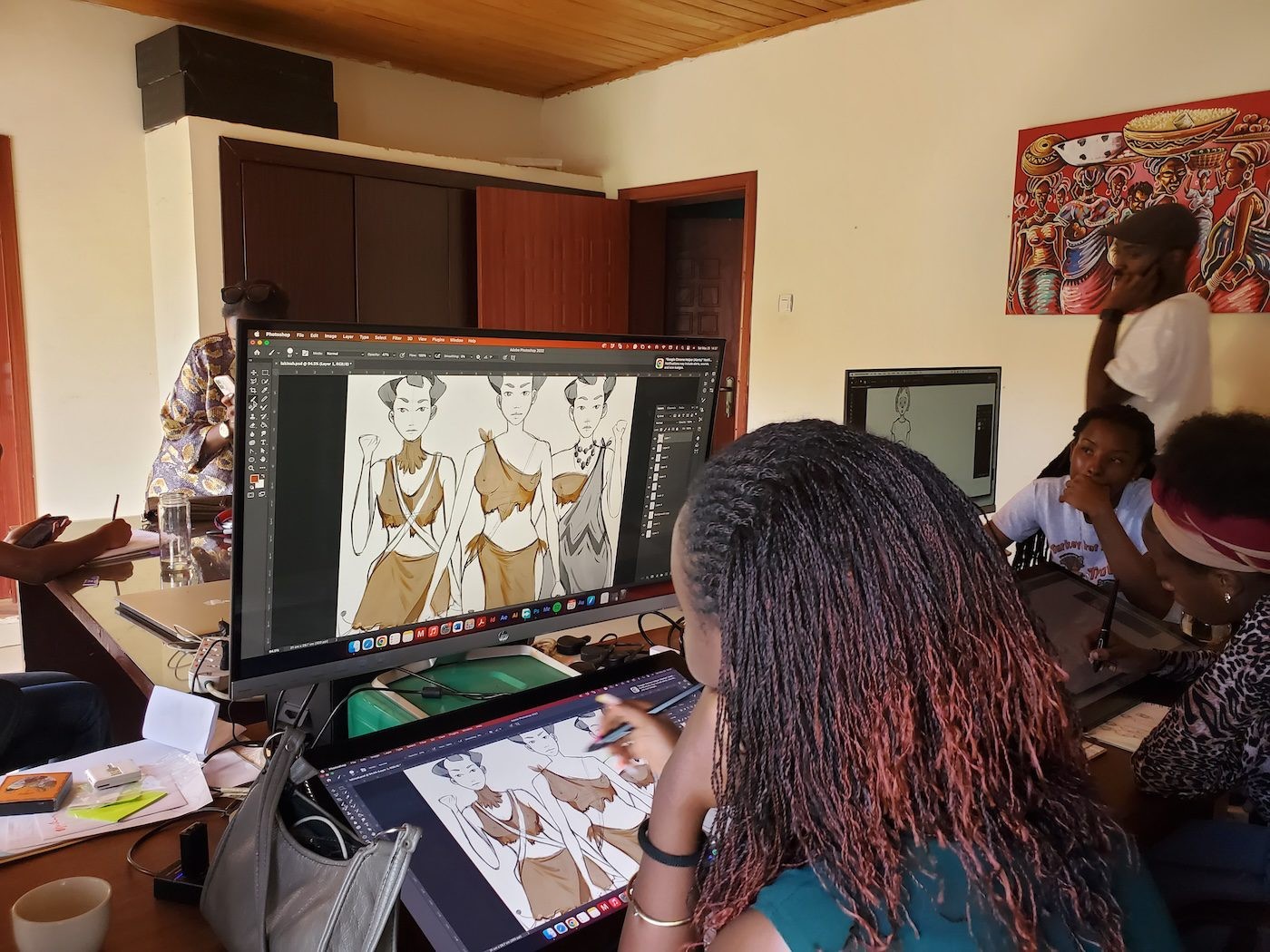
Workshop at InkStain organized by Jemima Kakizi. Photo: Andrew I.Kazibwe.
A scorchingly sunny afternoon finds me at InkStain, an illustration, animation, and video agency in Kacyiru, Kigali, where I meet Kakizi for our interview. It is a normal day for Kakizi, who is in the midst of facilitating training sessions for six young women. Titled Murika (to show a path) and inspired by the desire to uplift young women through skills, the six-month mentorship project opens up participants to creating an online presence, biography writing, digital sketching, and painting (among other skills) in the spirit of professionalizing their practice.
Kakizi cites the need for equipping young women with soft skills, which she believes contribute a lot in supporting and positioning emerging artists for the competitive market out there. Since professional management isn’t accessible for most artists, she states, we need to understand how to write and how to negotiate.
Previously also a practicing visual art and fashion designer, Kakizi recently fully dedicated herself to curating and organizing. Her approach has changed over time. Having been at the center of visual art practice for over a decade, Kakizi finds that acrylics or oil paint on canvas have always been dominant and nearly the same artworks are presented to the audience and market. She believes this isn’t explorative or attractive enough, especially for a global market.
Kakizi says that Rwandan female artists have barely ventured into the digital painting space, which could present vast possibilities for exercise of skill and diversity in creation. This would also solve the pending challenge of the cost that comes with art materials like acrylics, oil paints, and canvases. Although recycling can be cost-effective, it calls for much investment in time for sourcing and treatment, so digital art is more viable.
Impundu Arts is essentially a movement that sparks awareness, debate, and a sense of purpose around women’s active participation in art life and business life. The Rwandan art scene contains a rising realization of how the creative sector also holds vast potential through women.
The numerous successful exhibitions curated so far by Impundu Arts stand out as group shows presenting women’s artworks. Sisterhood of the Arts brought together twenty young women, by far one of the biggest presentations Kakizi has curated, at Kigali’s L’Espace. Recent exhibitions include Tying Knots, presenting five Rwandan contemporary artists at the 145 Route de Trèves, Luxembourg, who emerged from a mentorship program facilitated by artists Fabiola Uwera Rutamu, Moses Izabiriza, Denyse Umuhuza, Antoine Izere, Yseult Polfliet Mukantabana, and Kakizi. “As girls can no longer [just] imagine and leave it to boys alone, we also can fully practice art,” states Jenifer Tuyishimire, one of the participants in the exhibition.
Sharing this same thought is Aurore Singizwe, a student of the ongoing mentorship program who affirms that because society has maintained a perception that women do not practice art, it barely trusts or offers them work.
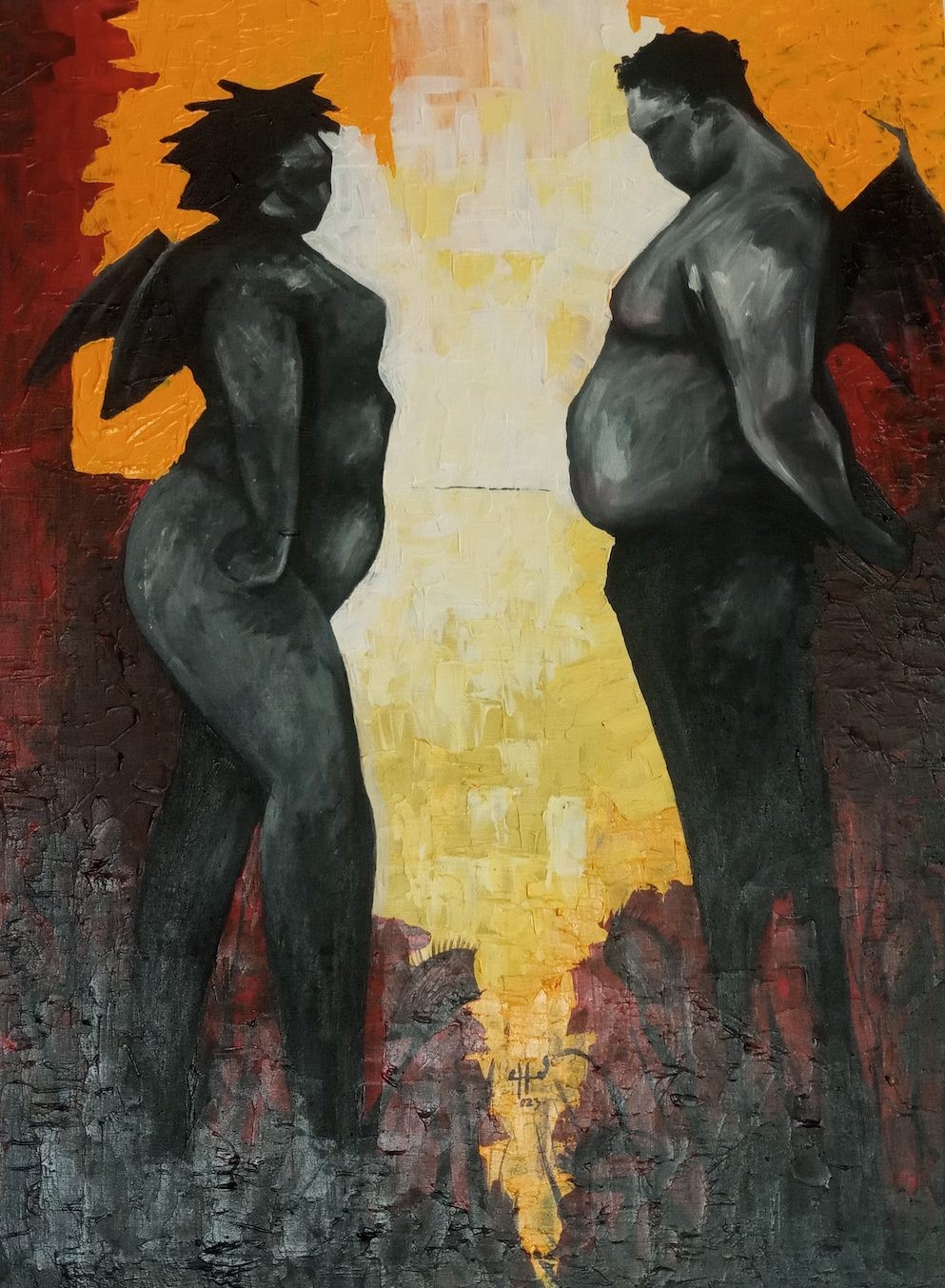
A painting on canvas by Teta Chel. The Artist’s works are expressive of critical issues like mental health, Photo by Andrew I.Kazibwe.
A new culture is now being harnessed by Impundu Arts as it uplifts female artists, first through training and then through exposure in curated exhibitions. “When Kakizi told me the exhibition would center on Rwandan women, I knew I wanted my contribution to reflect the candid images that characterize my work, focusing on the aspects of women’s empowerment in Rwanda that deeply move me,” says photographer Cynthia Butare, of a Rwandan group show on display at Gallery Brulhart in Geneva from April to July 2024.
Dubbed Fierce Femmes and also including works by Crista Uwase, Natacha Muziramakenga, Teta Chel, and Odile Uwera, the Kakizi-curated exhibition presents craft as envisioned by women in Rwanda right after the 1994 genocide against the Tutsi, a significant turning point in positioning empowerment as essential in shaping Rwanda’s growth. Butare focuses on Rwandan culture as a living expression of women’s values and history; she sees cultural expressions as powerful vectors for social understanding.
Other exhibitions have further acted as active platforms for works in which women express issues faced by them or the society they live in. From problems like gender-based violence, rape, oppression, and cultural segregation to bold abstract expressions of sexuality and bodily forms.
Enabled by her active practice as artist and curator, Kakizi also curates artists across Rwandan borders, like the Side by Side group exhibition in February this year at Niyo Arts Center in Kacyiru, which presented eight artists from Ethiopia, Rwanda, Burundi, Uganda, Kenya, and Tanzania.
The mentorship programs have yielded practical results not only for mentees but for mentors. “Dealing with an industry which holds a smaller niche requires me to train more people, who in turn we work with,” states trainer Dolph Banza, also founder of InkStain. “Although before I did successfully train two women, I’ve always been approached by and trained a larger number of men, who indeed as compared to women go out to dominate the market.”
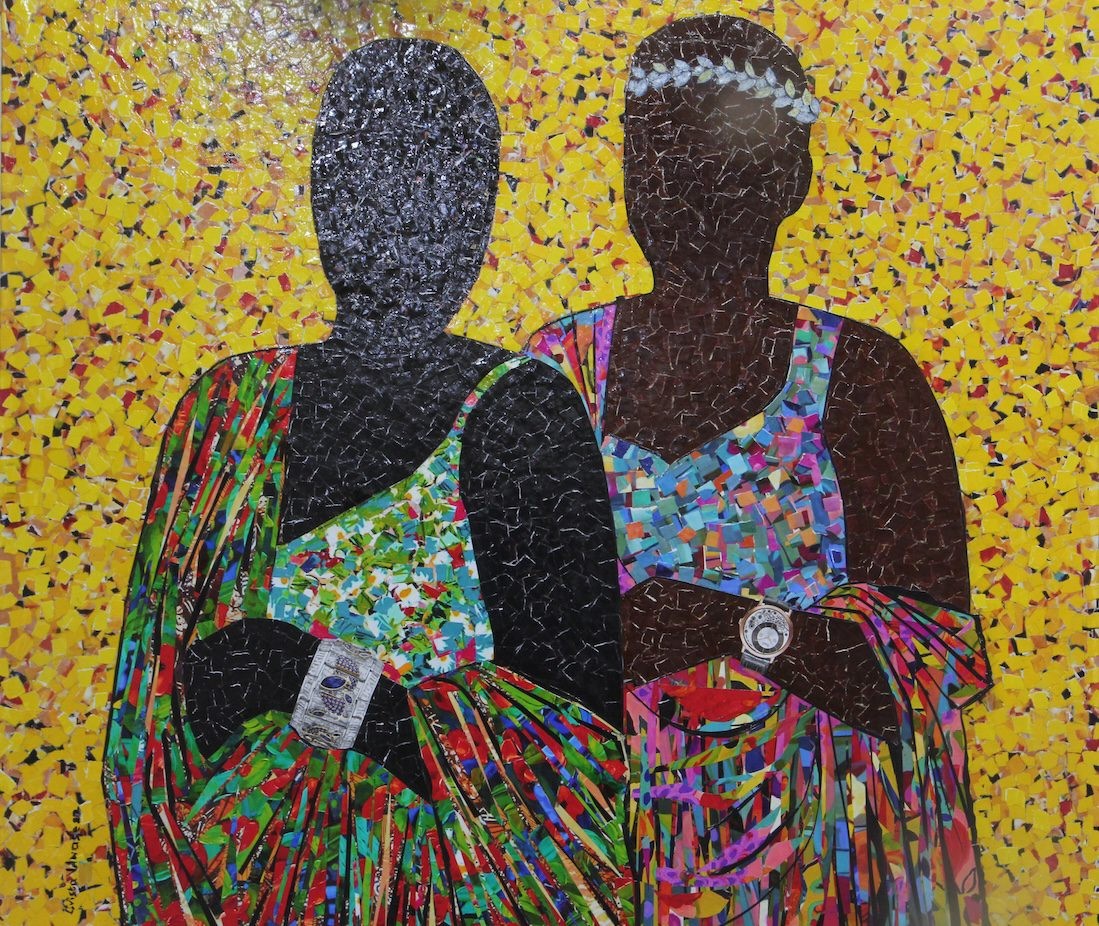
An untitled Paper Collage on Canvas piece by Crista Uwase on display during the ‘At the Entrance,’ a 2022 exhibition curated by Impundu Arts’ Jemima Kakizi, Photo by Andrew I.Kazibwe.
Banza welcomes the mentorship partnerships as a sweet challenge geared towards correcting the lack of female artists in the digital art market today. Shekinah Mutabazi, a 2023 graduate of graphic art, realizes that experience is a crucial prerequisite to being commissioned for any gig, which is part of what this mentorship offers. Although the programs target female artists, mentors also include experienced male artists since they too hold vital skills to be shared.
Kakizi believes that the present-day opportunities that technology presents call for faster adaption of skills. “I believe younger artists don’t necessarily have to struggle as we did before, so [there is] a need to mentor them with direction,” she explains.
It is a self-funded project, which despite having a gap in financing, is gradually progressing due to the partnership with InkStain. For Kakizi, funding of at least RFW15,000,000 (USD11,449) would facilitate the Impundu Arts mentorship program, although this should increase as the program gears towards sustainability. “Trainings like digital art call for an investment in the purchase of equipment like drawing tablets, which are quite costly,” she states.
Kakizi attests to the great need for mentoring young women towards professionalization in the arts, a task she is up for: “We are contacted by many women seeking to be part of these trainings, something we aren’t able to handle due to limited funding resources.”
Andrew Israel Kazibwe is a multidisciplinary freelance journalist based in Rwanda who collects, writes and presents news and focuses on art and lifestyle from Africa.
Feature
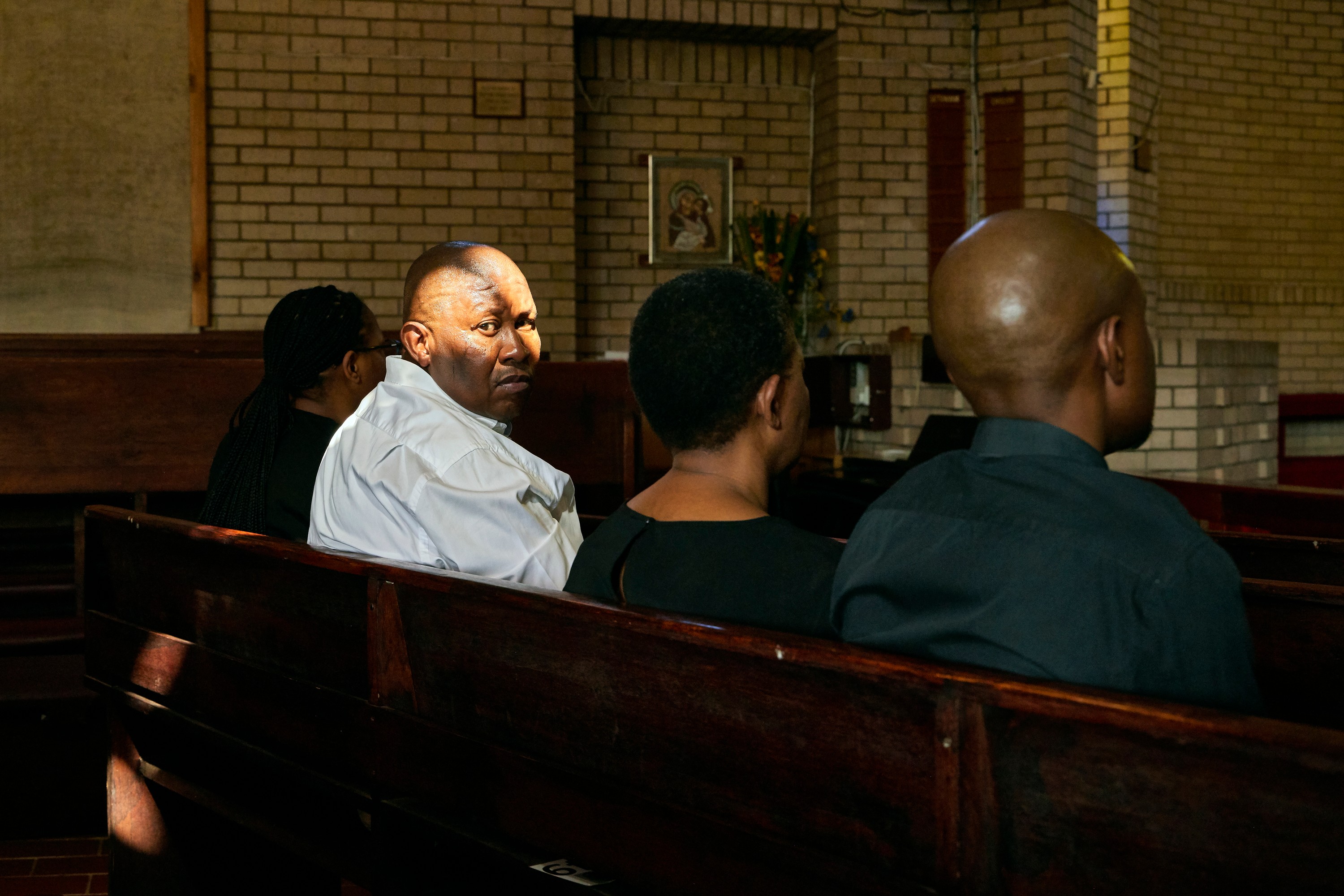
We're Still Here: Thero Makepe’s Visual Jazz
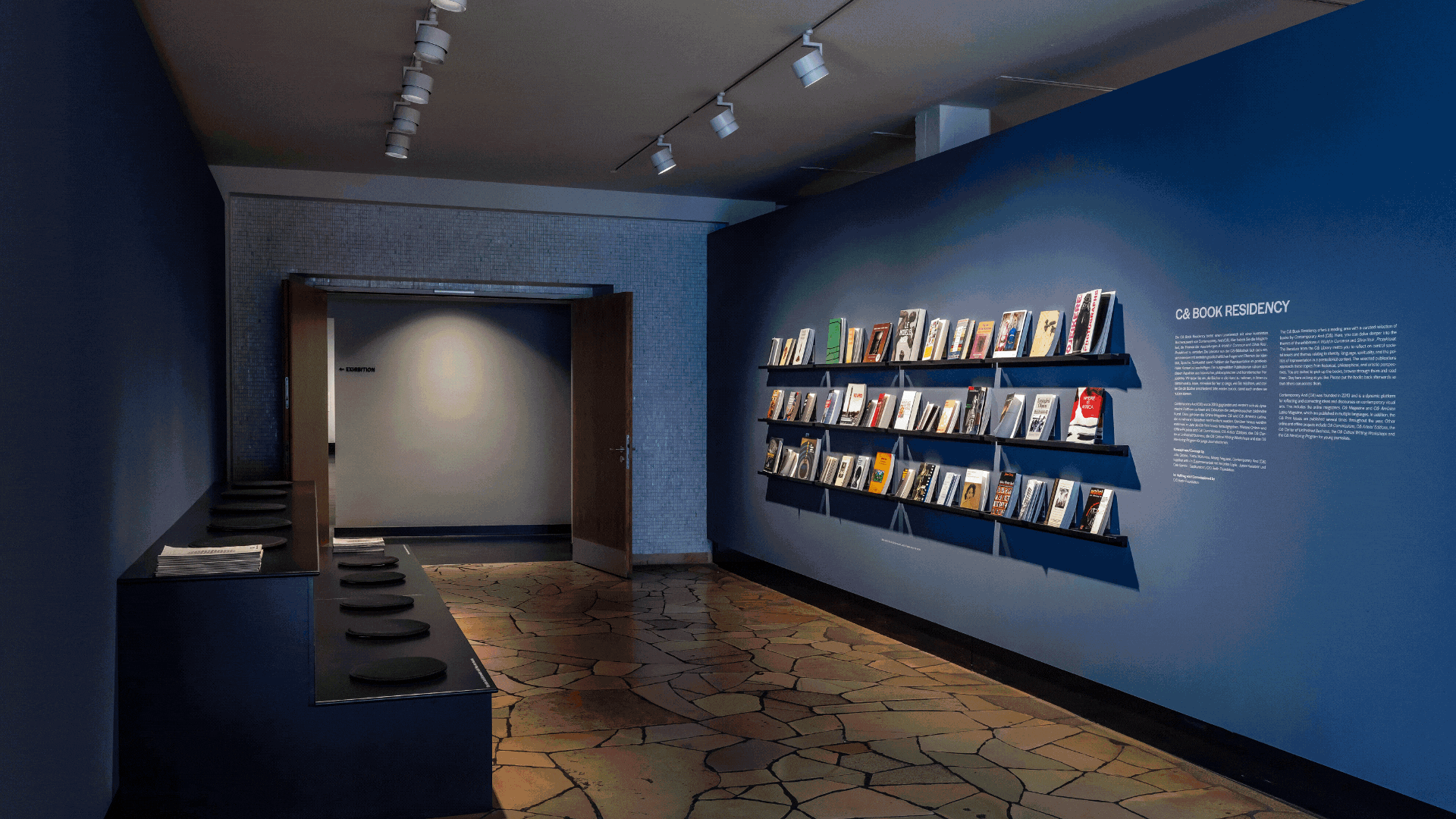
C& Highlights of 2025
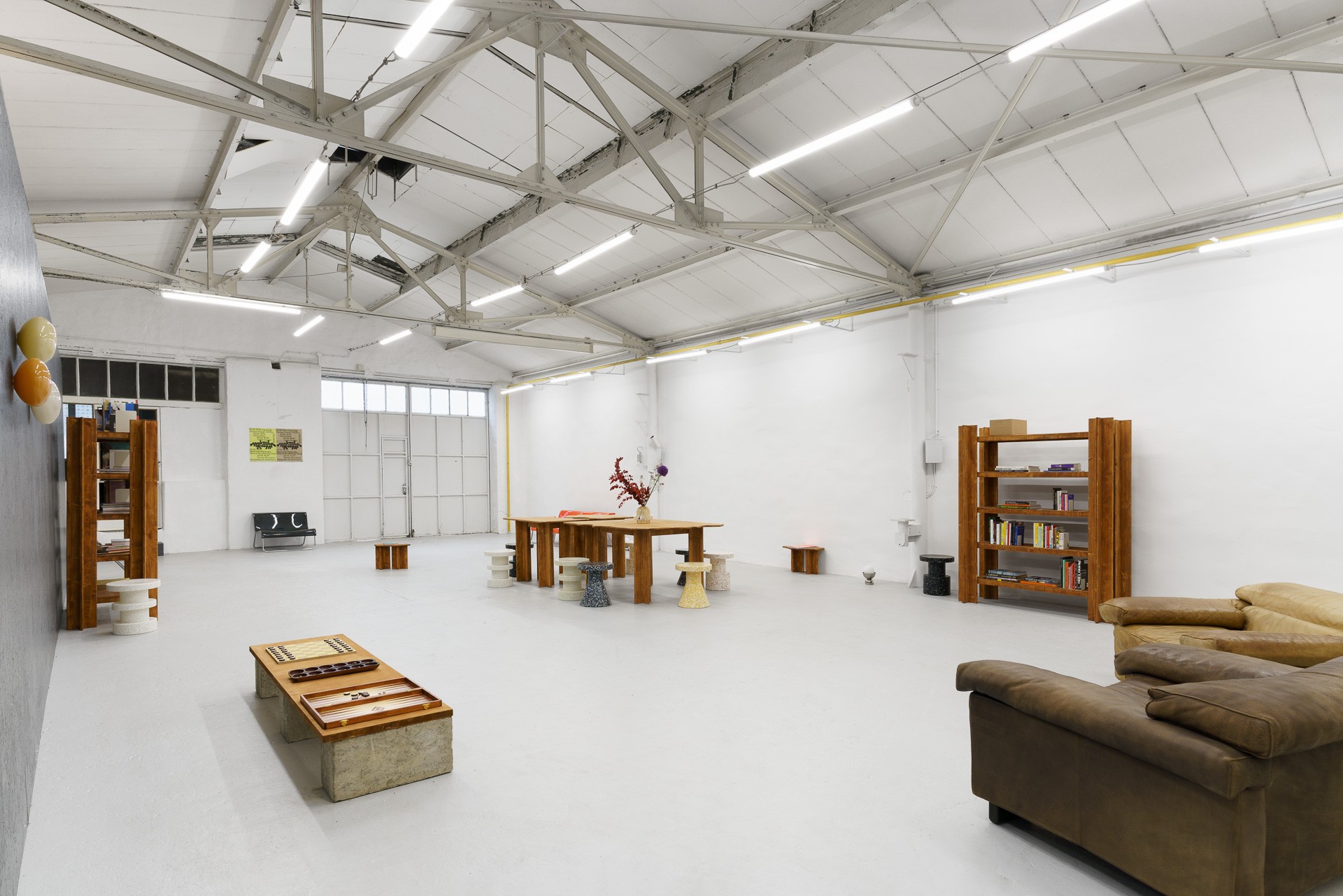
Maktaba Room: Annotations on Art, Design, and Diasporic Knowledge
Feature

We're Still Here: Thero Makepe’s Visual Jazz

C& Highlights of 2025
